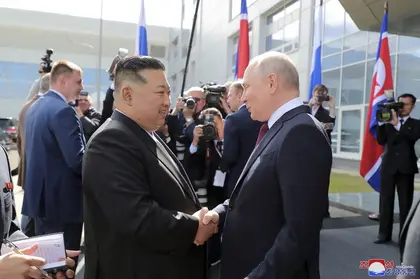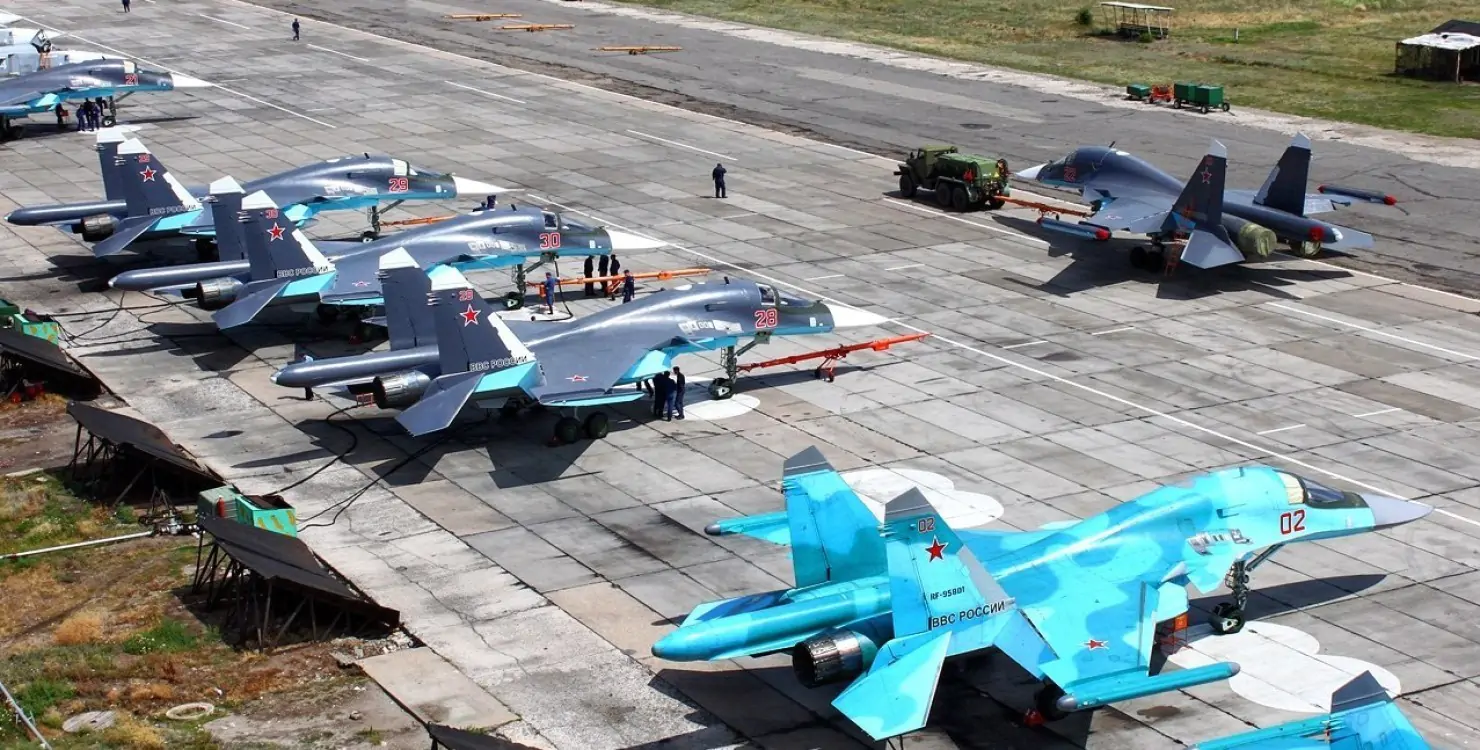As the year 2023 draws to an end, speculation about the real state of health of the Kremlin dictator Vladimir Putin is once again on the rise.
It seems that those who are tasked to monitor such things professionally and inform policymakers are convinced that the Russian leader is not as healthy and confident as he has tried to appear this month while announcing that he will go through the motions of standing again for the “presidency” – read, the role of Russia’s imperial despot – next year.
JOIN US ON TELEGRAM
Follow our coverage of the war on the @Kyivpost_official.
Putin’s health – despite his less than crafty reliance on doubles, and carefully prepared video calls and photo-ops – remains in serious doubt. And it is not only because of what the medical experts see.
The war against Ukraine is not going his way and there have been growing leaks about his wanting to cut a deal with the West behind Kyiv’s back. Casualties are huge and mounting, mobilization unpopular, and costs in equipment and financing rising swiftly.
The Russian economy, despite the brave face the Kremlin’s representatives place on its condition, continues to face very serious blows. Energy markets have been lost and Moscow has been forced to compensate by selling oil and gas at reduced prices to its friends and allies.
From peer to pariah
The blow to the prestige of Putin’s Russia has been immense and should not be underestimated. Its “mighty realm” has become largely a pariah among the states it once led or at least considered equal.

Germany Says Latest Undersea Cable Cut a ‘Wake-Up Call’
The likes of Iran, North Korea, Belarus, Venezuela, and such opportunistic hangers-on as India, Brazil and Hungary, are hardly the company that Putin would have preferred to be seen with in his heyday, when Germany and France played along, with the US accommodating and the G7 overall respectful.
By now, with Ukraine having proved it would not be a walkover and defiantly fighting back, with the West uniting and gradually rallying to its support and rejecting his crude bullying tactics and blackmail, Putin and his cronies must realize that they have painted themselves into a corner. Probably they hope that a Donald Tump victory in the next US presidential election could still extricate them.
Yes, Moscow can still cause a lot of trouble, mobilizing anti-Western sentiment, meddling covertly or directly in the Middle East, Africa, or Western affairs, but it no longer has what it takes for the longer term to aspire to the role it had during the Cold War in a bipolar world. It is fast being eclipsed by China and exploited by other BRICS countries for their own ends.
Even Armenia and Kazakhstan can no longer be relied on within Russia’s inner circle of former Soviet states. Ukraine, Moldova and, to a lesser degree for now, Georgia have aligned themselves with the European Union, and just as soon as something gives way in Moscow or its vassal in Minsk is disposed, Belarus will also follow them.
The aims should be clear; not mumbled, but stated aloud: the defeat of Russia, and regime change within it.
All this in itself is a bleak prospect and more than enough stress for Russia’s modern-day Caligula and his Pretorian guard. Logically, something has to crack: either he, or they. If not them, then perhaps even the docile Russian people so used to remaining servile instruments of tsars, commissars and Putin-likes, will also decide that enough is enough.
After all, who expected that the last Russian tsar would be forced to abdicate in 1917 after the reverses in World War I, or that Mikhail Gorbachev and Boris Yeltsin would manage to emerge from within the Soviet totalitarian communist system and oversee its demise.
Certain signs indicate that the Kremlin’s inner circle is indeed racked by insecurity and paranoia. And it’s not only Putin’s own peculiar defensive behavior, from receiving guests at the end of a long table to spending much of his time hidden away, prompting him to be labelled as the “bunker” tsar.
This month, while confirming (as if there were any doubt) that he will run again for president, Putin’s rivals, who in the authoritarian Russian system have no chance of challenging him seriously, have been further isolated in the vast prison system in which they find themselves, or prevented from registering their candidacy.
It’s logical, perhaps, for Putin as a despot to try to remove his two diverse yet similarly outspoken opponents, Alexei Navalny and Igor Girkin, from the reach of the media and the outside world. But to stop a woman on a peace platform, Yekaterina Duntsova, from running? Surely, it would have made more sense for a self-confident regime to allow her to become a candidate and play this up as a supposed manifestation of Russia’s “democracy,” however twisted.
Yekaterina Duntsova (R), a 40-year-old independent politician who declared her intention to run in the 2024 presidential election, holds flowers and poses with supporters outside the Central Election Commission in Moscow on December 23, 2023. Russia's Central Electoral Commission on December 23, 2023, rejected an application by Yekaterina Duntsova, a candidate calling for peace to stand in next year's presidential elections.Arden Arkman / AFP
What it means for the West
And so, how does this reflect on the current state of health of Western democracy and its leaders?
Informed sources tell us that there is considerable concern in Washington about what might happen if Putin were to die of natural or unnatural causes, or become incapacitated, or the victim of a palace coup.
Better to have the devil we know in place, the reasoning seems to be, than to risk unknown forces coming to the fore and taking over in Russia.
We’ve seen this kind of naïve, if not irresponsible, behavior on the part of Western leaders before. After the likes of President Ronald Reagan, who openly sought an end to the Russian “evil empire” – its subject peoples in Eastern and Central Europe knew then and as they do now that it was Russian in essence, something Putin himself has recently been acknowledging openly – various Western leaders got cold feet and panicked at the prospect that the collapse of the Soviet Union would be unmanageable.
Britain’s Iron Lady, Prime Minister Margaret Thatcher, bought into this, preferring to see the continuation of a Soviet Union “we can do business with.” US president George Bush, in his notorious “Chicken Kyiv” speech delivered to the Ukrainian parliament in 1991, shortly before it proclaimed Ukraine’s independence, tried to persuade it to ditch “dangerous nationalism” and coexist together with Russia and Gorbachev in a revamped USSR.
Subsequently, when Ukrainian independence became a fact, Western fears about “rogue nukes” falling into the wrong hands, generated to no small degree by Moscow, pushed Ukraine to give up its considerable nuclear arsenal in exchange for international security guarantees – only to have Germany and France eventually block Ukraine’s NATO aspirations.
Even after Russia grabbed Crimea and part of eastern Ukraine in 2014, Washington, Berlin and Paris chose the path of appeasing Moscow. And we know where that led to: the horrific result we have now.
So today, as the lessons from the recent past have taught us, there should be no illusions or hesitation. The aims should be clear; not mumbled, but stated aloud: The removal of Putin and indeed the very despotic, imperialistic and hostile system he represents. Yes, the defeat of Russia, and regime change within it.
This will enable Ukraine and Moldova to be integrated into the EU and NATO, with Belarus eventually also in line. It will shore up Europe’s eastern borders and permit a new security architecture to be created.
As for the Russians themselves, joint efforts should be stepped up to ensure that the proper messages and information reach them, despite the Kremlin’s control of the mass media and its huge crude propaganda apparatus. The choice is theirs: despotism, backwardness, isolation, stigma and the company of cynical clients or accomplices eager in the end to exploit their evident weaknesses; or a new start, both at home and abroad, as Duntsova tried to propose, with genuine peace and security.
Churchill and Hitler. Photo: Quora.
In the meantime, the fight to defeat Russia and thereby contain it and make it pay both externally and internally for its savage atavistic ways should be stepped up, not weakened. The spirit of Winston Churchill is called for, not that of Neville Chamberlain and Édouard Daladier. Hitler and his vile system had to be removed by force, and Germany today is not only a major player in the EU, but a strong supporter of Ukraine in the battle against the implacable Russian menace.
Putin wants to destroy Ukraine. He sees the free world as a danger and does what he can to subvert it. He and what he represents need to be removed. Yes, ultimately it boils down to either they or we. Compromises with Hitlers and Putins do not work. We cannot afford to flinch. Tomorrow might be too late.
You can also highlight the text and press Ctrl + Enter








